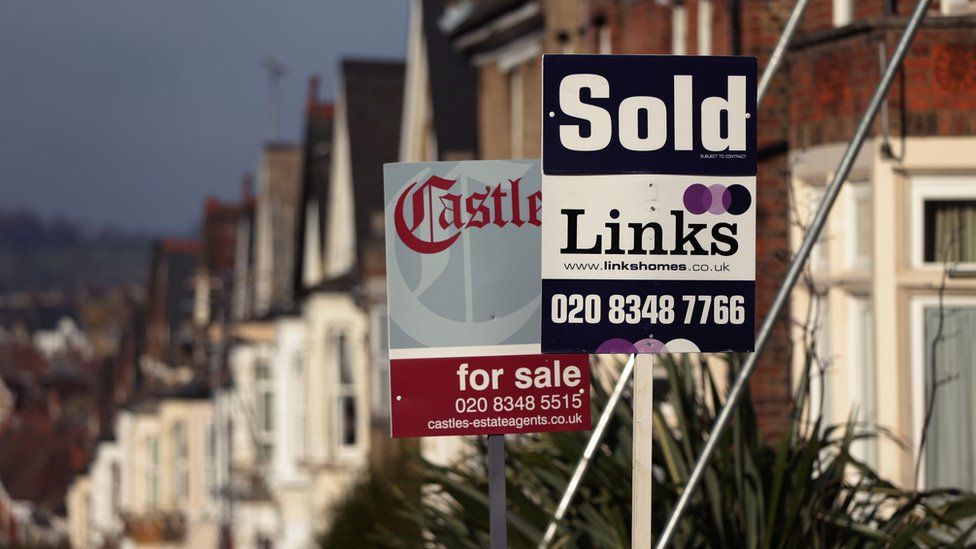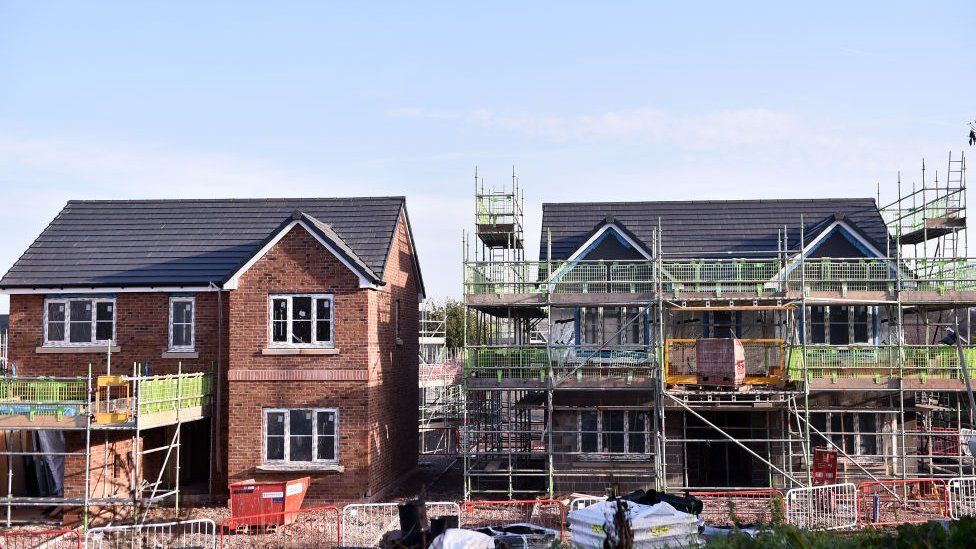
A new mortgage guarantee scheme to help people with small deposits get on the property ladder is set to be announced at next week’s Budget.
The government will offer incentives to lenders, bringing back 95% mortgages which have “virtually disappeared” during the pandemic, the Treasury said.
Chancellor Rishi Sunak says he will use the Budget to level with people about the pandemic’s impact on the economy.
Amid the crisis government borrowing reached £271bn for the financial year.
That is £222bn more than a year ago and has pushed the national debt to £2.13 trillion.
Explaining the government’s economic response to the pandemic, Mr Sunak told the Financial Times: “We went big, we went early, but there is more to come and there will be more to come in the Budget. But there is a challenge [in the public finances] and I want to level with people about the challenge.”
He added: “I will do whatever it takes to protect the British people through this crisis and I remain committed to that.”
Labour has criticised the government for a “stop, start” approach to support measures during the pandemic.
The chancellor will unveil his Budget, including the mortgage scheme, in a Commons speech on Wednesday.
Mr Sunak said: “Owning a home is a dream for millions and we want to help as many people as possible.”
Boris Johnson said he wants “generation rent” to become “generation buy”.
The prime minister added: “Young people shouldn’t feel excluded from the chance of owning their own home and now it will be easier than ever to get onto the property ladder.”

The coronavirus pandemic has meant there are few low-deposit mortgages available, the Treasury said, with just eight on the market in January.
Low-deposit mortgages are often seen as riskier by banks as they are more vulnerable to negative changes in property prices – meaning people hold more debt than their home is worth.
Under the new scheme, which will launch across the UK in April, the government will offer to take on some of this risk.
It is not restricted to first-time buyers or new-build homes, but there will be a £600,000 limit.
The latest scheme is based on the Help to Buy mortgage guarantee scheme, which was introduced under David Cameron’s government in 2013 and closed to new loans at the end of 2016.
The Treasury said that policy “reinvigorated the market for high loan-to-value lending after the 2008 financial crisis” and enabled 100,000 households to buy a property across the UK.
Of these, 80% were purchases by first-time buyers, statistics showed. But housing charity Shelter said the scheme increases house prices by 1.4%.
The Help to Buy mortgage guarantee scheme was distinct from the Help to Buy equity loan scheme that still allows first-time buyers in England to take out a government loan to put towards the cost of buying a newly-built home.
The equity loan scheme has been criticised for inadequately targeting those most in need of financial help, and for boosting the profits of big housebuilders.
The price of a typical UK home has surpassed £250,000 for the first time in recent months, according to the Halifax.
The new scheme could coincide with the end of a stamp duty holiday in England and Northern Ireland, which is due to end on 31 March, though this may yet be extended.


